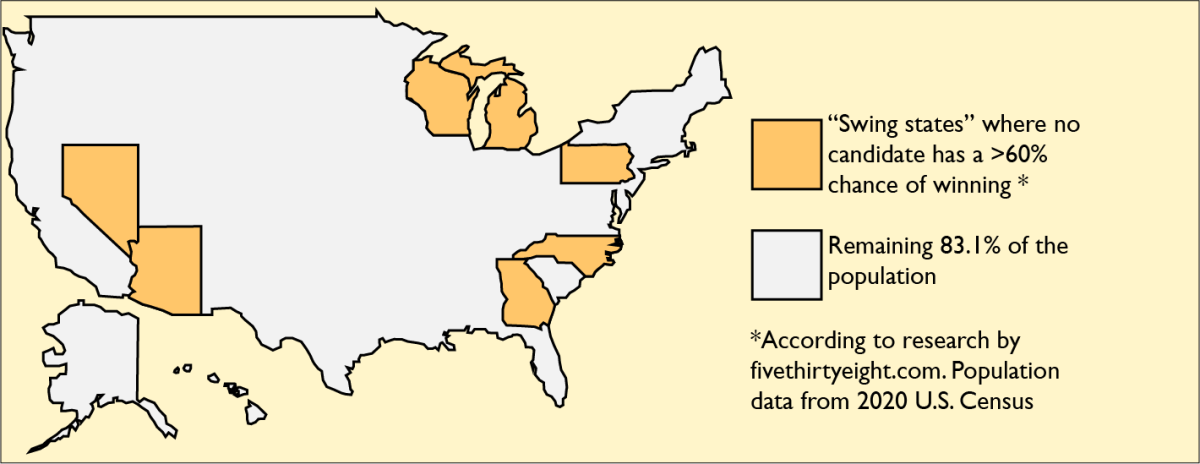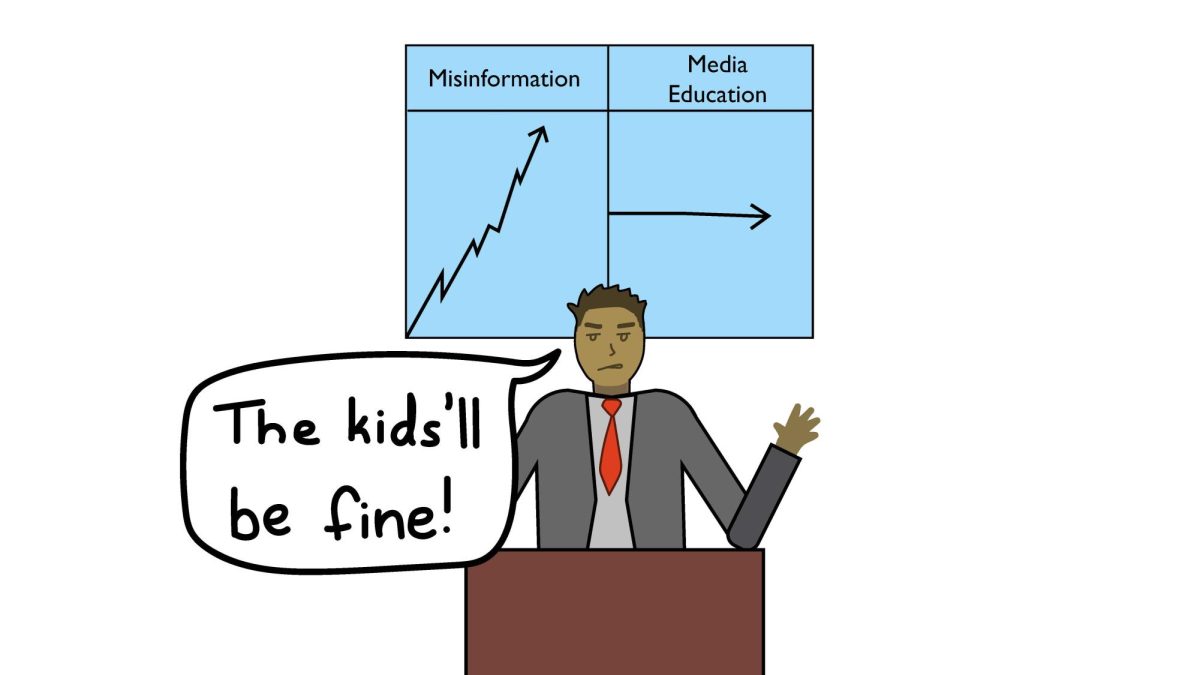The Electoral College was created by the founding fathers over two centuries ago due to their distrust of the undereducated American public’s ability to decide on a high-quality candidate. Now, it is an outdated tradition that leaves hundreds of millions of Americans at an individual representative disadvantage. This unfair process needs to be reconsidered.
The weighing of electoral votes is inherently misrepresentative of state populations. Each state is assigned a number of electors equal to the number of seats they hold in the House of Representatives — which is determined by state population — plus its two Senate seats. The number of House seats is assigned by population based on census data collected every 10 years, but there are two Senate seats for each state regardless of population. This means that a voter in Wyoming, where each elector represents roughly 193,000 people, represents over three times the proportion of an electoral vote of a voter in Washington where each elector represents roughly 640,000 people. Also, if a state’s population grows while another falls for the first nine years of a census cycle, that change wouldn’t be accounted for until after the next census.
During an election year such as this year, states that consistently vote Democratic or Republican are almost completely ignored by all major presidential campaigns. Instead of focusing on Washington, for example, which has voted for the Democrats in each presidential election since 1988, major candidates are more motivated to campaign in far less predictable “swing” states like Pennsylvania.
The 2024 presidential campaign is largely concentrated in just seven states that total 95 electoral votes out of 538. The American population that lives in the rest of the states and D.C. is not considered in most campaign decisions, as the chance of a candidate shifting a state that usually votes for another party towards their side is near zero. Over 275 million out of 330 million Americans live in those states, according to the U.S. Census Bureau, which are often ignored in policy intentions or debate topics. This undermines the idea of equal representation and discourages presidential campaigns from focusing on the greater good of the entire country.
This flawed process undermines what America stands for. A country built on ideas of freedom and equal representation cannot contradict itself with an unfair and unequal voting process. The states of Maine and Nebraska have already moved
away from the winner-takes-all system by allowing a proportional split of their electoral votes. These states allocate two electoral votes to the winner of the state’s popular vote, then one electoral vote to the popular vote winner in each congressional district. Although a constitutional amendment is required to completely overturn the system, this first step towards a more representative election may help change voter processes.
Beyond those issues, the Electoral College’s reliance on electors can lead to dangerous unpredictability with the problem of “faithless electors.” These individuals, tasked with representing the will of the people, have on several occasions voted against their state’s popular choice. Although 38 states have laws that require electors to vote for their pledged candidate, there is a lack of enforcement regulations. In 59 presidential elections, 165 “faithless electors” have not cast their votes for candidate that they were supposed to. In fact, in the 2016 election, seven electors voted for candidates other than those they were pledged to, adding unnecessary chaos and mistrust. While faithless electors have yet to significantly affect the final outcome, their existence exposes a flaw in the system where personal judgment can override the collective voice of millions.
While proponents claim the current system ensures a balanced representation of the many diverse regions of our country, it’s clear that the possibility of individual electors defying people’s choice undermines faith in our elections. Each citizen’s representative vote is further diminished by the lack of consistency throughout the process. Reworking the Electoral College is a necessary step toward ensuring every vote really counts equally for all American citizens.
There are several superior alternatives. The option most likely to be put into effect would be splitting electoral votes in each state such as in Nebraska and Maine Implementing any processes nationally, such as a popular vote or ranked selection of candidates would require the lengthy and unlikely process of passing a constitutional amendment. Regardless of which option is pursued, it is clear that a change needs to be made.










